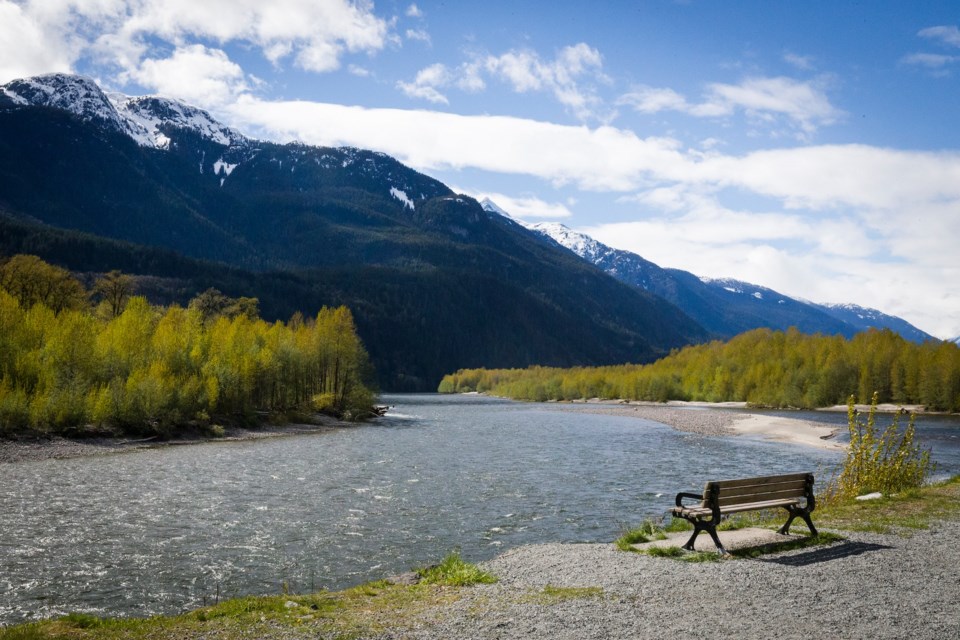In 1859, Charles Dickens published his timeless novel A Tale of Two Cities, set in Paris and London before and during the French Revolution.
It became one of the best-selling works of literature of all time and has found its way to the stage, film, and radio.
The book’s iconic opening remarks depicted the stark contradictions of that era.
As we head into 2023, would it be a stretch to say those remarks apply to contemporary Squamish?
Dickens got off to a rousing start with the frequently quoted catchphrase, “It was the best of times, it was the worst of times.”
Generally, life is good in Squamish. That’s why most residents prefer to stay here.
Our unique geographic features and proximity to Whistler and the Lower Mainland are major assets.
This town boasts a cornucopia of outdoor activities and recreational pursuits.
We also have a constantly expanding selection of eateries and opportunities for communal activities and gatherings.
But local medical services are at times overwhelmed. Most major surgery patients must access Lions Gate Hospital in North Van and arrange transportation to and from that facility.
For many residents, that can be a stressful undertaking, especially for those with disabilities.
And with the soaring cost of food and rent, more locals are struggling to make ends meet.
From January 2021 to this past October, 25,000 food hampers were distributed at the Squamish Food Bank.
Next, Dickens told us, “It was the age of wisdom; it was the age of foolishness.”
No doubt, that paradoxical concept resonates in this town. Green initiatives are flourishing, including carbon-based building systems, carbon capture technology, helium recovery and small batch processing.
And as much as the Smart Growth mantra that spurns urban sprawl and champions high-density infill has considerable merit, the recent massive residential and commercial building boom and population influx have created traffic congestion and downtown parking issues. As well, by 2100, due to the increase in ocean temperature and associated polar ice melt, it is estimated this community will face a one-metre sea level rise.
Dickens went on to say, “It was the epoch of belief; it was the epoch of incredulity.”
Many folks decided to move here, spurred on by the “Squamish is amazing” development industry tagline, only to find out their chances of getting hooked up with a family doctor were slim to non-existent after local physicians hightailed it to more lucrative digs.
How many newcomers were captivated by real estate brochures announcing that Squamish is a great place to raise a young family and then discovered that daycare for their kids was a scarce commodity?
Additionally, according to Dickens, “It was the season of light, it was the season of darkness.” And nothing could strike closer to home than that assertion.
Social media opened the door to personal empowerment and connectedness with our neighbours and beyond. Never have more people enlightened each other with the minutia of their lives and the comings and goings in this community.
Unfortunately, that medium also tapped into our darkest impulses, hitherto hidden from the public domain. Cloaked in anonymity, it led to a toxic political arena fuelled by vitriolic smear campaigns against several members of council.
Next, Dickens told us that “It was the spring of hope, it was the winter of despair.” This town has its share of seasonal joys and challenges.
After years of neglect, downtown Squamish has become a vibrant and funky neighbourhood.
A stroll along Cleveland Avenue, between Pemberton and Victoria Street, in late May or early June, when the potted flowers hanging from lampposts bloom and the cafes, shops and eateries are bustling, will confirm that newfound vibe.
Fast forward to December, when lingering snow on streets and sidewalks in the downtown core can make accessibility challenging for many residents with limited mobility.
But before we try to shoehorn the Squamish setting too far into the Dickensian narrative, let’s tip-toe that thought back a tad. Those conditions may not be despair-inducing, but they are disconcerting.
Finally, Dickens drops this startling revelation in our laps: “We were all going direct to heaven; we were all going direct the other way.”
Sitting atop the Stawamus Chief and inhaling the fresh mountain air under a clear blue sky can be an otherworldly, if not Zen-like, experience. More than a few locals rave about communicating with the spiritual realm at twilight or dawn, perched on one of the three peaks on that massive granite slab.
By contrast, that experience can quickly evaporate during smoke-shrouded summers when the mountains disappear entirely into the netherworld of a wildfire-fuelled haze.
We now know that forest fire seasons are becoming more prolonged and intense, which can put the community’s well-being at risk.
More than a century and a half after they were published, Dickens’ astute observations have considerable contemporary applicability in our backyard.
Helmut Manzl is a long-time Squamish resident and political commentator.







